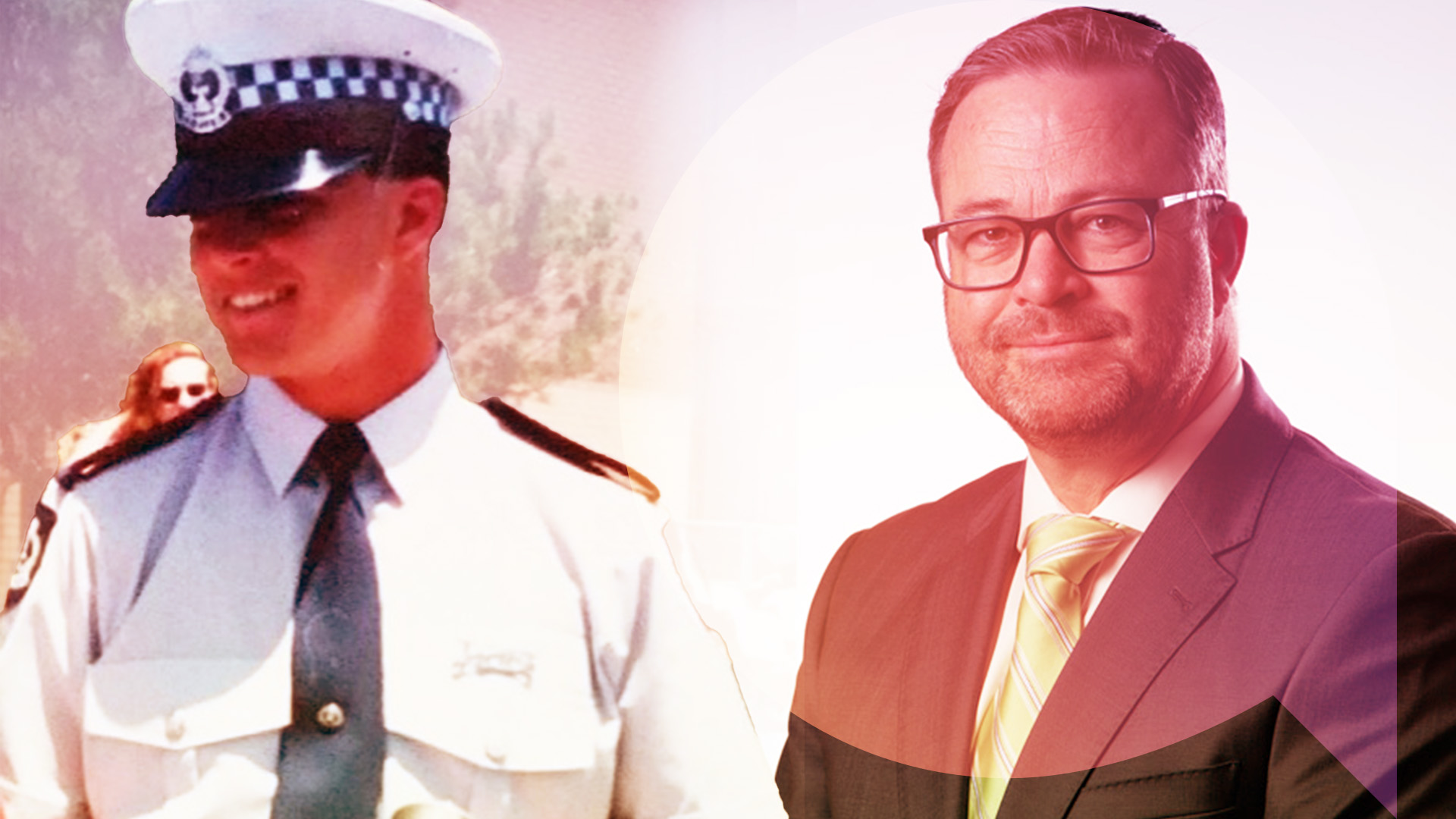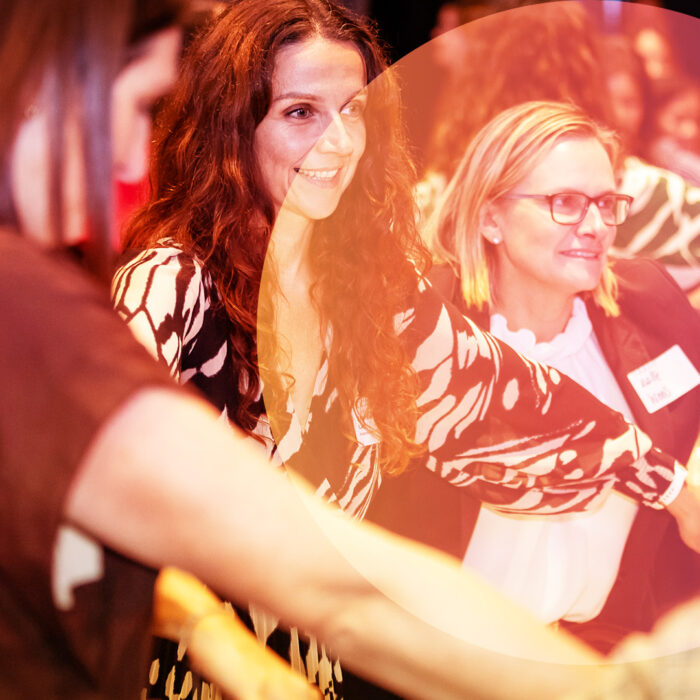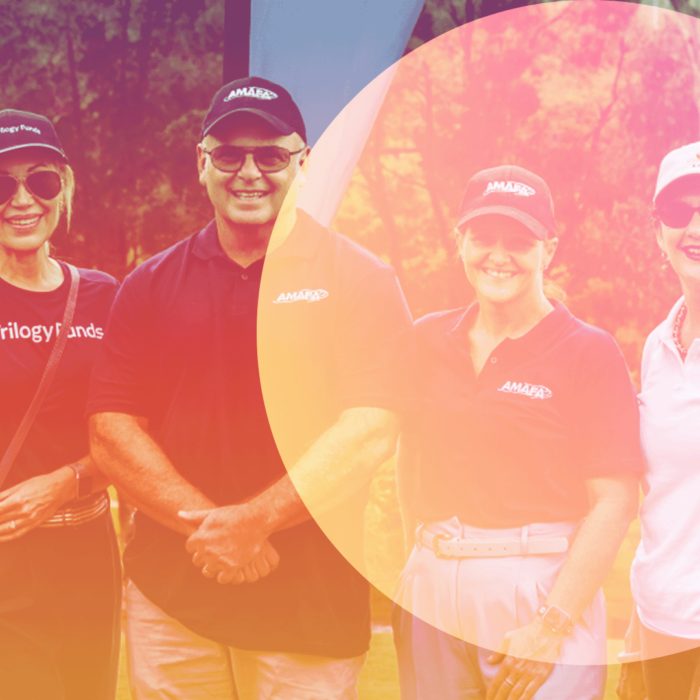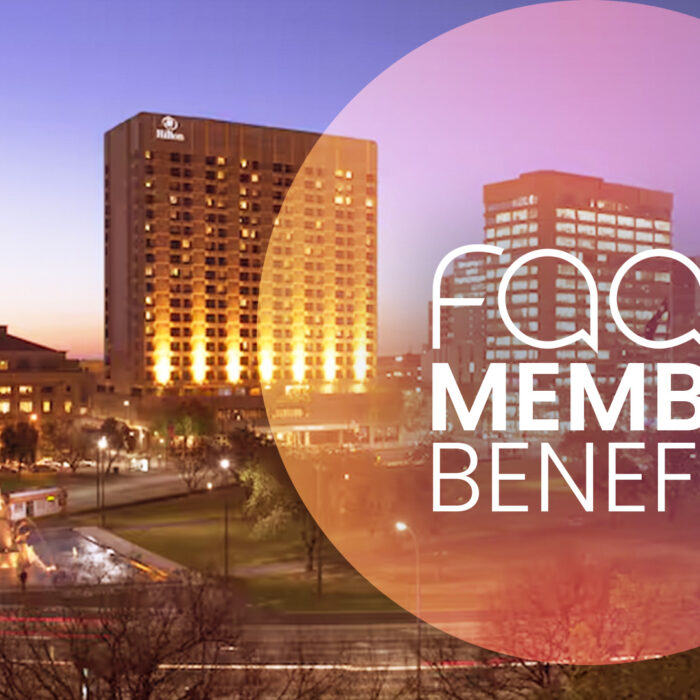By Brett Schatto
Life rarely follows a straight path.
Mine has twisted through three distinct careers, each shaping who I am today. As I reflect on my 25 years as a financial planner, I can see how my unconventional journey created the foundation for work that has become more than a career – it’s become a calling.
The winding road to financial planning
Born and bred in South Australia’s Riverland region, I finished school at 16 and, like many country kids, I faced the decision to stay or move. Adelaide beckoned, and somehow my parents let me go – something I’d struggle to do for my own children.
My first career aspiration was to become a naturopath, but I felt guilty about the money my parents were spending supporting me and my brothers still living at home.
Partly from interest, partly from guilt, I made my first career pivot and joined the police force. It was transformative. At the young age of 19, I was entrusted with tremendous responsibility. I particularly loved nightshift – after midnight, I felt like a protector keeping those who slept, safe.
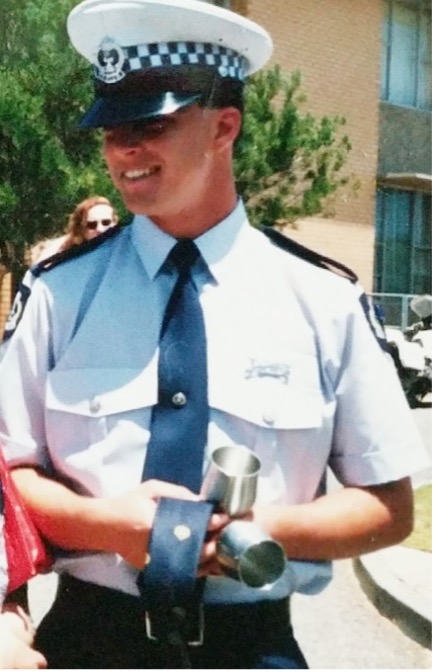
Policing - where I Iearned about life's fragility
Life accelerated quickly; becoming a dad at 22, my 20s were devoted to work and family. My police career exposed me to life's harsh realities from delivering death notices, covering bodies at accident scenes, arresting people for murder, watching autopsies, and investigating serious crimes.
A violent assault aged 24 changed everything: coward-punched while breaking up a fight, waking up in hospital after being unconscious for 30 minutes. Nine months later came my first grand mal seizure, leading to a diagnosis of epilepsy likely caused by brain scarring from the injury.
The seizures were initially uncontrollable. Medications caused severe side effects weight gain, swollen gums, full-body rashes while leaving me constantly drowsy and lethargic. Eventually, a medication helped control the grand mal seizures but my future in policing remained uncertain.
I transitioned to light duties, working in the Anti-Corruption Branch and later with the Serious Fraud Investigation Branch where I became one of the investigators on a large financial planning fraud case. Speaking with victims as a trained detective, I learned to see multiple perspectives.
“Financial planning allowed me to help vulnerable people who couldn’t speak the financial language I had learned.”
The pivot to finance
During this period, I enrolled in a Commerce degree at Adelaide University as a mature age student. It was like learning a new language – one that somehow made sense to me. The learning process was extraordinary, exposing me to an entirely new perspective on life.
By 1999, with my second child born and ongoing medical concerns, I had to make difficult choices. My corporate finance major was steering me toward roles on the eastern seaboard, but Adelaide felt big enough for me. That’s when I seriously began considering financial planning.
Financial planning allowed me to help vulnerable people who couldn’t speak the financial language I had learned. In many ways, I could still be a protector for my community – just in a different capacity.
In June 2000, I made one of the biggest decisions of my life: resigning from a job I loved to forge a new path. My salary dropped by two-thirds. It was a massive leap of faith, but I was backing myself and taking control of my future.
Life's challenges shape a financial planner
Life has tested me in ways I never imagined. I lost my nine-year-old son Jordan in a car accident in 2001. I went through divorce and navigated joint custody arrangements. I watched my business partner Katie succumb to breast cancer aged just 32 after the birth of her daughter. My son Connor underwent life-saving liver surgery at 13 and he will eventually need a transplant. I served as executor after my father died from prostate cancer.
These experiences, painful as they were, developed in me a profound empathy around suffering. They’ve shaped how I approach financial planning as a deeply human service that intersects with life’s most significant moments.
What I love about financial planning
What draws me to financial planning is the opportunity to bring my unique resilience to help people dealing with their own challenges. I can share knowledge that makes their lives better with me than without me.
“The best financial plan isn’t just about accumulating the biggest nest egg, it’s about creating a life well-lived.”
Unlike the technical articles that dominate the industry, I believe financial planning is fundamentally about understanding that time – not just money – is our most precious resource. As I wrote in a piece inspired by Oliver Burkeman’s “Four Thousand Weeks” and Bill Perkins’ “Die with Zero,” if we’re fortunate enough to live to 80, we get roughly 4,000 weeks on this Earth.
The best financial plan isn’t just about accumulating the biggest nest egg, it’s about creating a life well-lived. It’s about balancing security with life satisfaction, finding the sweet spot in the time-health-wealth triangle where we can enjoy our peak life experiences while we’re healthy enough to fully embrace them.
How financial planning has evolved
When I started as an adviser in 2000, financial planning was primarily product-focused and commission-driven. Over the past 25 years, I’ve witnessed and participated in its transformation into a true profession focused on client outcomes.
In 2003, I established Pride Advice, which has been recognised as RI Advice National Advice Practice of the Year six consecutive times from 2016-2021. This success has come because we adapted to the profession’s evolution by putting clients at the centre of everything we do.
Today’s financial planning is about holistic life planning – helping clients define what matters most to them and creating financial strategies that support those priorities. It’s about asking different questions:
- How can we balance duty to others with protecting our own time and experiences?
- What memories and experiences do we want to create whilst we’re healthy enough to enjoy them?
- How can we structure our finances to support both security and life satisfaction?
The technical knowledge is still vital – I’ve supplemented my Bachelor of Commerce with a post-graduate Diploma in Global Wealth Management and attended Strategic Management Courses at prestigious institutions like HEC Paris, Cambridge, Columbia, and Stanford. But technical expertise alone isn’t enough.
The best planners combine financial acumen with deep empathy and life wisdom.
Why consider financial planning as a career?
For young students or those contemplating a career change, financial planning offers a rare opportunity to combine analytical thinking with meaningful human connection. Few careers allow you to directly impact people’s lives while challenging you intellectually.
The profession continues to evolve, with increasing emphasis on education, ethics, and client-centricity.
Financial planning offers:
- Intellectual challenge and continuous learning
- Meaningful human connections and relationships
- Satisfaction helping others achieve their goals
- Flexibility to incorporate your unique strengths and perspectives
- Being a part of a profession that continues to gain respect and recognition
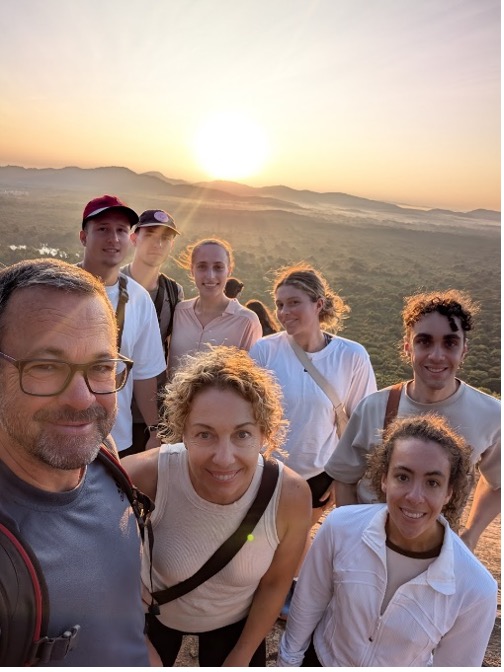
Finding your own path
My experiences from country kid to police officer to financial planner, through personal tragedies and professional triumphs have all contributed to who I am today.
Your path to financial planning may not resemble mine, but that's precisely what will make you effective.
The financial planning industry needs more diverse voices and experiences. It needs people who understand that behind every portfolio and strategy is a human being with hopes, fears, and dreams. If you're drawn to both the analytical and human aspects of financial planning, this profession may be your calling too.
After 25 years, I can honestly say I’ve never regretted my decision to take that leap of faith in 2000. Financial planning has given me the privilege of helping others navigate their life journeys – and that’s a reward far greater than any I could have imagined as an uncertain young police officer wondering what my future held.
I have found both careers stimulating and rewarding. They each required others to trust you to do your job properly – whether protecting their safety or securing their financial future. That trust is a privilege I’ve never taken lightly, and it remains the common thread that has given meaning to my professional life across very different careers.

